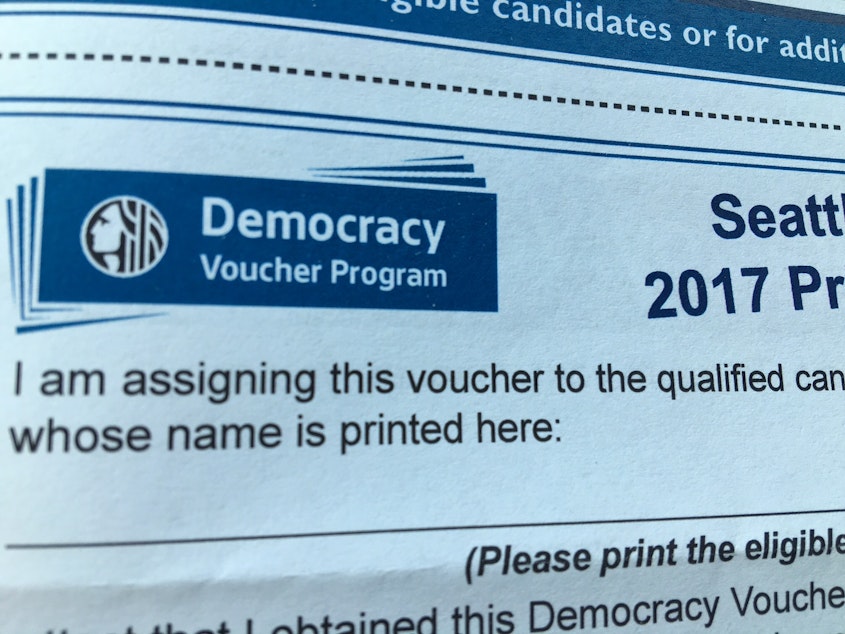Are Seattle's democracy vouchers working? The results so far are mixed

Dozens of people are running for Seattle City Council this year, 45 to be exact. And they’re vying for just seven council seats.
But when you look at the last comparable election, the candidate field isn’t as crowded as you might think. There are about 18% fewer candidates than 2019, which is the last time we had seven council seats on the ballot in Seattle.
That's not the trend “democracy voucher” advocates hoped to see.
Democracy vouchers are Seattle’s system of public election financing. Each qualified resident gets four vouchers worth $25 each to donate to the candidates of their choice.
The program is designed, in part, to increase the number of people who donate to campaigns, and that is exactly what’s been happening.
It’s also intended to address some of the problems with “big money in politics,” to give candidates who aren’t wealthy or well-connected a leg up with campaign expenses. When the program idea went to Seattle voters, advocates said it would help level the playing field, neutralize the power of big money in politics, and encourage more regular people to run.
The number of council candidates dramatically increased in 2019, according to one academic analysis.
Sponsored
But this year, the number of candidates has gone in the wrong direction, with 45 candidates running for council compared to 55 in 2019.
It’s not entirely clear why fewer people have thrown their hats in the ring this year. But several incumbents decided not to run for re-election, with some hinting that the increasingly toxic atmosphere in Seattle politics is one reason why they decided to get out.




